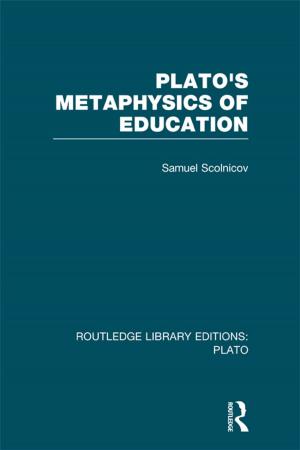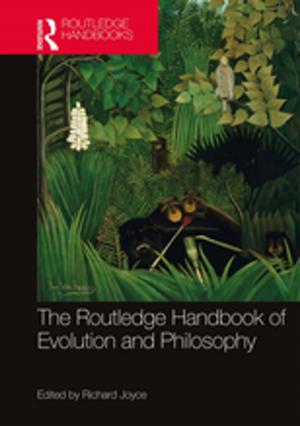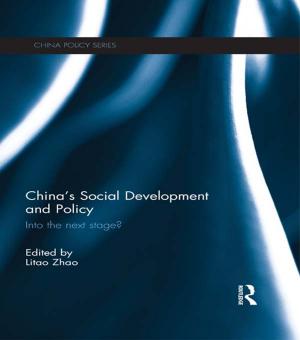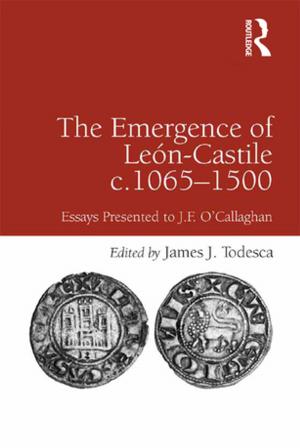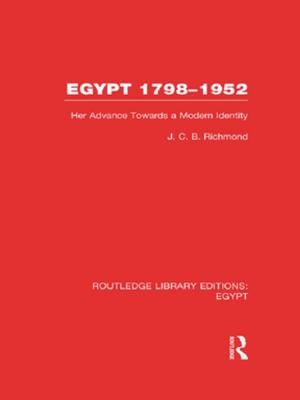Intermediate Quantities: Logic, Linguistics and Aristotelian Semantics
Logic, Linguistics and Aristotelian Semantics
Nonfiction, Social & Cultural Studies, Social Science| Author: | Philip L Peterson | ISBN: | 9781351783781 |
| Publisher: | Taylor and Francis | Publication: | January 12, 2018 |
| Imprint: | Routledge | Language: | English |
| Author: | Philip L Peterson |
| ISBN: | 9781351783781 |
| Publisher: | Taylor and Francis |
| Publication: | January 12, 2018 |
| Imprint: | Routledge |
| Language: | English |
This title was first published in 2000: Intermediate quantifiers express logical quantities which fall between Aristotle's two quantities of categorical propositions - universal and particular. "Few", "many" and "most" express the most commonly referred to intermediate quantifiers, but this book argues that an infinite number can be understood through a deeper examination of the logical nature of all intermediate quantifiers. Presenting and analyzing the logical and linguistic features of intermediate quantifiers, in a fashion typical of traditional logic, Philip L. Peterson presents an account integrating the logic and semantics of intermediate quantifiers with the two traditional quantities by traditional methods. Having introduced the basic idea of how to approach the task in the first chapter, with heavy emphasis on the linguistic meanings and ordinary uses of English intermediate quantifier expressions, Peterson then undertakes the task of completely integrating the three basic intermediate quantities into traditional logic in the following chapter. Drawing on the work of Robert carnes and taking a critical look at James McCawley's grammatical analysis, the author then provides ruther revisions, extensions and explorations into logical inference, linguistic meaning, algebraic methods and rules of infinite-quality syllogism to reach the conclusion that a new approach to foundations of mathematics, based on the syllogistic logic of quantifiers, is possible to produce a new explanation of classical distribution and an extension of "infinite-quantity" syllogistic to relations. Considerable attention has been paid over the years to "generalized quantifiers" and this completion of an explanation for extending traditional syllogistic logic to handle intermediate quantifiers offers insights for those studying across areas of logic, linguistics and the philosophy or semantics of natural language.
This title was first published in 2000: Intermediate quantifiers express logical quantities which fall between Aristotle's two quantities of categorical propositions - universal and particular. "Few", "many" and "most" express the most commonly referred to intermediate quantifiers, but this book argues that an infinite number can be understood through a deeper examination of the logical nature of all intermediate quantifiers. Presenting and analyzing the logical and linguistic features of intermediate quantifiers, in a fashion typical of traditional logic, Philip L. Peterson presents an account integrating the logic and semantics of intermediate quantifiers with the two traditional quantities by traditional methods. Having introduced the basic idea of how to approach the task in the first chapter, with heavy emphasis on the linguistic meanings and ordinary uses of English intermediate quantifier expressions, Peterson then undertakes the task of completely integrating the three basic intermediate quantities into traditional logic in the following chapter. Drawing on the work of Robert carnes and taking a critical look at James McCawley's grammatical analysis, the author then provides ruther revisions, extensions and explorations into logical inference, linguistic meaning, algebraic methods and rules of infinite-quality syllogism to reach the conclusion that a new approach to foundations of mathematics, based on the syllogistic logic of quantifiers, is possible to produce a new explanation of classical distribution and an extension of "infinite-quantity" syllogistic to relations. Considerable attention has been paid over the years to "generalized quantifiers" and this completion of an explanation for extending traditional syllogistic logic to handle intermediate quantifiers offers insights for those studying across areas of logic, linguistics and the philosophy or semantics of natural language.


